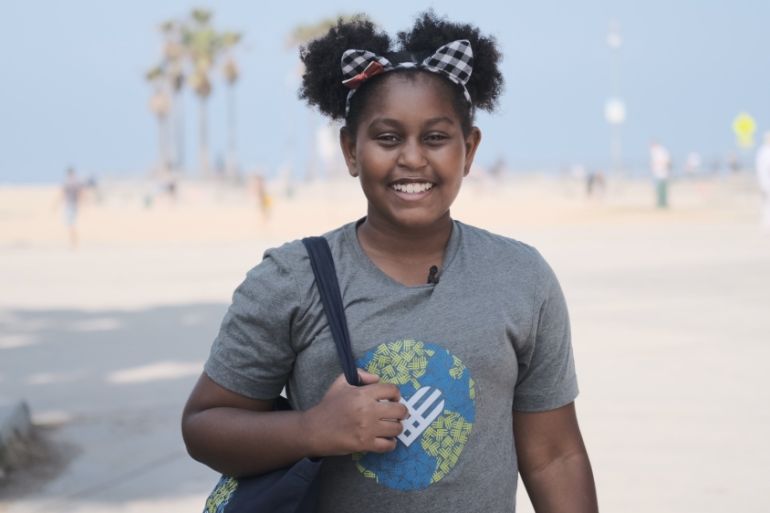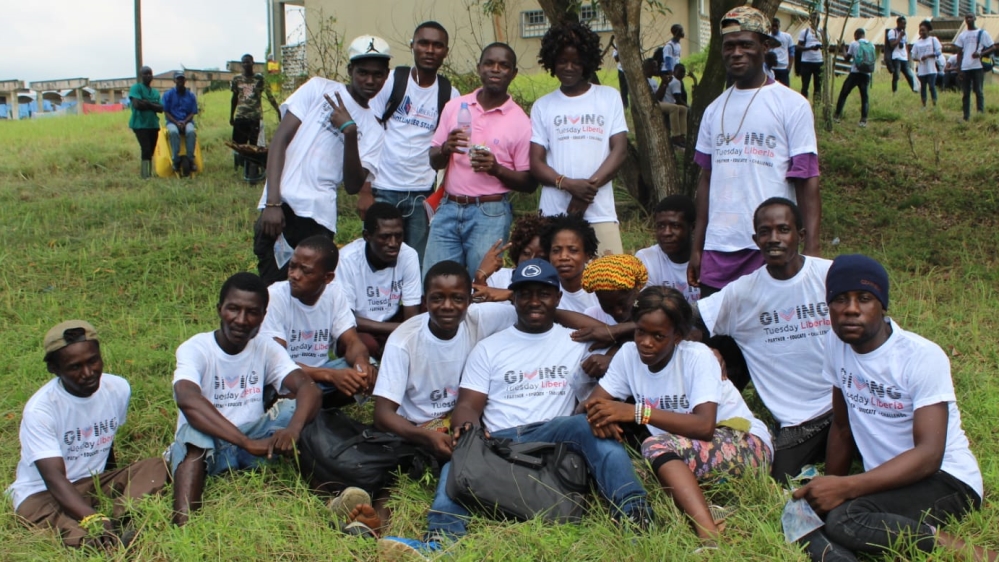#GivingTuesday: Millennials worldwide most likely to contribute
‘It’s grown into something we never expected, a generosity movement with global reach,’ says nonprofit chief.

Every year, the United States holiday of Thanksgiving is followed by two commercial bonanzas that kick off a frenetic period of unrivalled consumerism: Black Friday and Cyber Monday. But those odes to capitalism are increasingly challenged – if not in sales volume, then in generosity – by the appeals on #GivingTuesday to contribute money and time to the most needy.
Since it began seven years ago, #GivingTuesday has “experienced extraordinary growth”, says the nonprofit organisation’s CEO, Asha Curran.
Keep reading
list of 3 itemsBangladesh’s unsung heroes: Model NGO sector spurs development
Homeless evicted from makeshift centre as snow returns
“It’s grown into something we never expected, a generosity movement with global reach and official leadership in 60-plus countries,” she told Al Jazeera of the designated day when people everywhere are encouraged to do good, financially or otherwise.
“In this incredibly connected age, it’s impossible to keep a good idea from spreading across borders,” Curran said about #GivingTuesday, which started in the US but now has participants in every nation.
More than $1bn has been raised online over the past seven years in the US alone on #GivingTuesday. And while 63 percent of US participants gave money, 37 percent have given in other ways – including food, clothing drives or other forms of nonmonetary giving.
The phenomenon is also motivating donors to contribute to the social sector year-round. And while younger generations are often counted out of philanthropic efforts due to the deeper pockets of older people, millennials are most likely to engage in #GivingTuesday.
GivingTuesday became its own independent charity in July and only employs 10 people, but they also form the nucleus of a worldwide effort.
“But we are emphatically not a franchise operation,” said Curran. “We don’t look at country leaders [and their national groups] as chapters.”
‘Culture of giving’
Overseas, in India, 12 times the number of donors gave in 2018 compared to 2017. In Russia, #GivingTuesday has motivated people to open up about causes they like.
From Colombia and Liberia to Somalia and Jordan, the global network of nonprofits is collaborating and innovating – supercharged after meeting up at a global summit earlier this year.

At least one-third of US adults said they participated in GivingTuesday last year. Some 32 percent of adults in Singapore, 25 perecnt of those in Norway and 20 percent in Brazil also said they joined.
But in Brazil, country leader Joao Paulo Vergueiro says there is not much of a philanthropic infrastructure.
“People do give and are generous, but mostly in a nonstrategic manner – giving on the streets or responding to disasters,” he said. “And nonprofits themselves haven’t quite developed a fundraising culture,” he told Al Jazeera, adding that community organisations could become less dependent on government funds.
Last year, when the average gift size in the US was just over $100, the holiday generated $400m domestically in 24 hours just from online donations – which are estimated to be only 10 percent of overall giving.
Small organisations perform about twice as well as larger organisations on #GivingTuesday, though bigger groups receive a greater share of dollars.
Among the 200 campaigns across the US is a holiday-season lighting effort in Chicago by Jahmal Cole – the founder of My Block, My Hood, My City – to help teenagers help overcome poverty and isolation.
In Baltimore, Chris Wilson is taking the charge with InsideVoices to spotlight incarcerated men’s and women’s views on generosity. And in Columbus, Ohio, Amy Hawley and Make-A-Day are providing a mobile medical van and hot meals for homeless people.
‘Unsustainable income inequality’
Despite the big strides made by the backers of #GivingTuesday, December 31 still attracts substantial attention from would-be donors.
“A lot of people save their giving for the end of the year,” Curran said, referring to the “transactional reasons” why Americans use deductions to offset taxable earnings.
“There is nothing transformational about that,” she added. “We wanted to introduce into the ecosystem something more mindful…the first ‘hashtag movement’ of its kind.”
However, Curran said that while the data is still being examined, individual giving has been in decline. One of the economic reasons she gives is the “absolutely unprecedented and unsustainable income inequality” that prevents middle-class families from giving more.
“I’m always sorry to see fewer resources going to nonprofits who do work that is more badly needed than ever,” said Curran, who believes governments should better reward philanthropy. “I’m going to place my bets on the generosity of citizens – here in the US or elsewhere – regardless of tax policy.”
“Everybody’s voice matters,” said Curran about the power of collective giving. “Nobody’s voice is too small.”